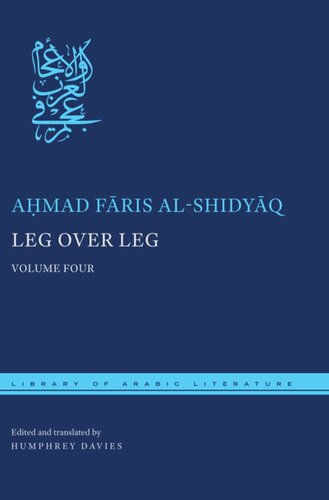

Most ebook files are in PDF format, so you can easily read them using various software such as Foxit Reader or directly on the Google Chrome browser.
Some ebook files are released by publishers in other formats such as .awz, .mobi, .epub, .fb2, etc. You may need to install specific software to read these formats on mobile/PC, such as Calibre.
Please read the tutorial at this link: https://ebookbell.com/faq
We offer FREE conversion to the popular formats you request; however, this may take some time. Therefore, right after payment, please email us, and we will try to provide the service as quickly as possible.
For some exceptional file formats or broken links (if any), please refrain from opening any disputes. Instead, email us first, and we will try to assist within a maximum of 6 hours.
EbookBell Team

4.7
36 reviewsLeg over Leg recounts the life, from birth to middle age, of ‘the Fariyaq,’ alter ego of Ahmad Faris al-Shidyaq, a pivotal figure in the intellectual and literary history of the modern Arab world. The always edifying and often hilarious adventures of the Fariyaq, as he moves from his native Lebanon to Egypt, Malta, Tunis, England and France, provide the author with grist for wide-ranging discussions of the intellectual and social issues of his time, including the ignorance and corruption of the Lebanese religious and secular establishments, freedom of conscience, women’s rights, sexual relationships between men and women, the manners and customs of Europeans and Middle Easterners, and the differences between contemporary European and Arabic literatures. Al-Shidyaq also celebrates the genius and beauty of the classical Arabic language.
Akin to Sterne and Rabelais in his satirical outlook and technical inventiveness, al-Shidyaq produced in Leg Over Leg a work that is unique and unclassifiable. It was initially widely condemned for its attacks on authority, its religious skepticism, and its “obscenity,” and later editions were often abridged. This is the first English translation of the work and reproduces the original Arabic text, published under the author’s supervision in 1855.